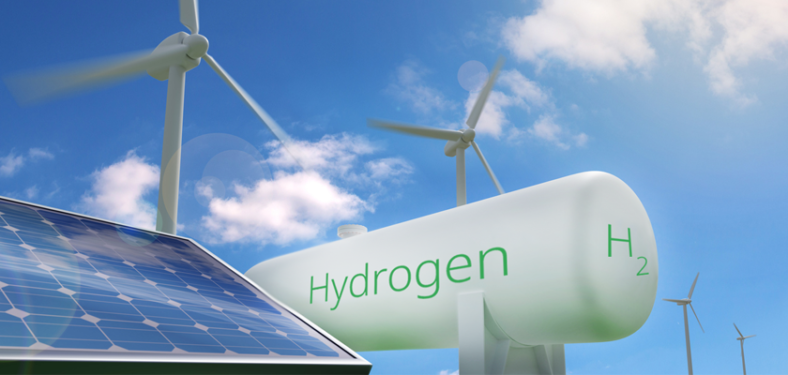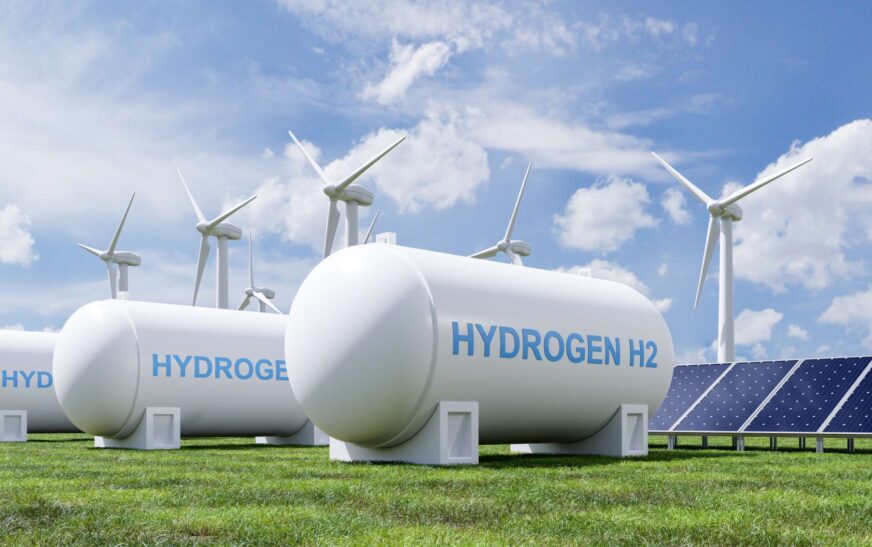Introduction to Hydrogen Energy
Hydrogen energy is emerging as a game-changer in the quest for sustainable solutions. As we grapple with climate change and dwindling fossil fuel reserves, the allure of hydrogen—especially green hydrogen—grows stronger. This clean alternative offers not only an innovative way to power our lives but also holds tremendous potential to reshape industries and economies worldwide.
Imagine harnessing the most abundant element in the universe to fuel everything from vehicles to factories. With advancements in technology, hydrogen is stepping into the spotlight, promising a future where energy production aligns seamlessly with environmental responsibility. The journey into this fascinating world begins now, exploring its advantages, challenges, current applications, and what lies ahead on this exciting frontier of clean energy.

Advantages of Hydrogen Energy
Hydrogen energy offers numerous advantages that make it a compelling option for the future. First and foremost, its abundance is striking. Hydrogen can be extracted from various sources, including water and biomass, making it widely available.
Another significant benefit is its cleanliness. When hydrogen burns or undergoes fuel cell reactions, the only byproduct is water vapor. This means zero emissions of harmful pollutants or greenhouse gases, positioning hydrogen as a truly green alternative to fossil fuels.
Moreover, hydrogen boasts high energy density. A small volume can store a large amount of energy compared to conventional batteries. This characteristic allows for longer-lasting power in vehicles and other applications.
Additionally, hydrogen technology promotes energy security. It diversifies our energy portfolio and reduces reliance on specific resources like oil or coal. As more countries invest in sustainable infrastructures, hydrogen could play an essential role in achieving global climate goals.
Challenges and Limitations of Hydrogen Energy
Hydrogen energy holds great promise, but it faces several challenges that hinder widespread adoption. One major issue is production costs. Creating hydrogen, especially green hydrogen from renewable sources, can be expensive and inefficient.
Storage and transportation also pose significant hurdles. Hydrogen gas requires high-pressure tanks or cryogenic temperatures for effective storage, which adds complexity to logistics.
Infrastructure development remains limited in many regions. Without a robust network of refueling stations and pipelines, the transition to hydrogen-powered vehicles becomes impractical.
Safety concerns are prevalent as well. Hydrogen is highly flammable and poses unique risks during handling and transport.
The environmental impact of certain production methods raises questions about sustainability. While green hydrogen offers a clean alternative, not all production processes align with eco-friendly goals. These limitations highlight the need for ongoing research and innovation in this field.

Current Use and Applications of Hydrogen Energy
Hydrogen energy is already making waves across various sectors. In transportation, hydrogen fuel cells power vehicles ranging from cars to buses and even trains. This clean energy alternative reduces greenhouse gas emissions significantly.
In industrial settings, hydrogen serves as a critical feedstock for producing ammonia and refining petroleum. Its ability to generate high temperatures makes it invaluable in metal processing.
Moreover, the integration of hydrogen into renewable energy systems allows for efficient storage solutions. Excess solar or wind energy can be converted into hydrogen through electrolysis, providing a sustainable way to manage intermittency issues.
Countries are also exploring hydrogen’s role in heating applications for residential and commercial spaces. Blending hydrogen with natural gas offers a transitional path toward cleaner heating options without major infrastructure changes.
The versatility of this element continues to expand its presence across multiple domains, showcasing its potential as an essential player in the future of green energy.
Future Possibilities for Hydrogen Energy
The future of hydrogen energy holds immense promise. As technology advances, we can expect more efficient methods for producing green hydrogen. Electrolysis powered by renewable sources is paving the way for cleaner production processes.
Transportation could see a major shift. Fuel cell vehicles are already in development, potentially revolutionizing how we commute and transport goods. Imagine cities filled with zero-emission cars, buses, and trucks relying on this clean alternative.
Industrial applications also present exciting opportunities. Hydrogen can help decarbonize heavy industries like steelmaking and chemical production, drastically reducing carbon footprints.
Energy storage solutions may become more viable as well. Hydrogen has the potential to store excess renewable energy from wind and solar farms effectively, balancing supply and demand in our power grids.
Research into innovative uses will continue to emerge, making hydrogen a key player in achieving global sustainability goals while promoting economic growth across various sectors.
Government Support and Investment in Hydrogen Technology
Governments around the world are recognizing the critical role of hydrogen in achieving a clean energy future. With increasing concerns about climate change, many nations are investing heavily in hydrogen technology.
Financial incentives and grants for research and development are becoming more common. These funds aim to accelerate breakthroughs that can make green hydrogen production more efficient and cost-effective.
Countries like Germany, Japan, and Australia have launched national strategies focused on hydrogen as an alternative energy source. They seek to establish robust infrastructure for production, storage, and distribution.
Public-private partnerships are also gaining momentum. Collaborations between governments and businesses foster innovation while sharing risks associated with new technologies.
As support grows, so does the ambition to create a global hydrogen economy. This could lead to massive job creation and sustainable growth across various sectors while significantly reducing carbon emissions.
Conclusion: The Promising Potential of Hydrogen Energy
The journey of hydrogen energy is just beginning. As we face the pressing challenges of climate change and the need for sustainable solutions, hydrogen stands out as a beacon of hope. Its potential to serve as a clean alternative fuel source offers numerous environmental benefits.
Hydrogen can significantly reduce greenhouse gas emissions when produced through green methods, making it an attractive option for industries looking to lower their carbon footprints. The versatility of hydrogen allows it to be used across various sectors, from transportation to power generation.
While some obstacles still exist—such as production costs and infrastructure development—the momentum behind hydrogen technology continues to grow. Governments are recognizing its importance and are investing heavily in research and development initiatives.
As we explore this promising energy source further, there’s no doubt that hydrogen holds tremendous potential for shaping our future. With continued innovation and support, it could play a vital role in creating a cleaner, more sustainable world for generations to come.






